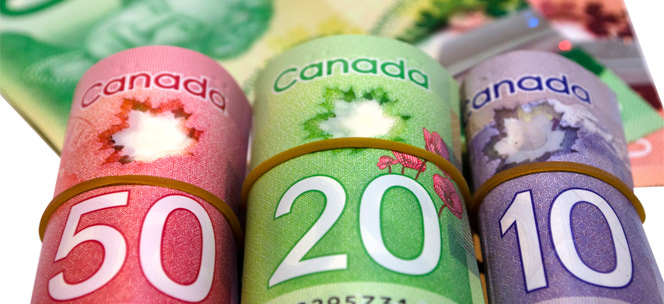Trump 2.0 means Canada must put income tax cuts on the table

The topic on everyone’s mind is tariffs: Will Trump act on his threat to impose 25 per cent across-the-board tariffs on the Canadian economy?
But there’s something else Canadians should worry about: income taxes.
During President-Elect Donald Trump’s first term, he lowered income taxes for Americans at virtually at all income levels. And Trump pledged during the presidential election campaign to cut taxes further.
Here in Canada, our tax rates are already uncompetitive. With a possible tax cut south of the border, it’s time to re-examine Canada’s income tax policies.
Let’s take a gander at how Canadians who earn $75,000 a year are taxed compared to Americans.
A taxpayer in Ontario earning $75,000 a year pays an income tax rate of about 30 per cent.
Compare that to the two states bordering Ontario: Michigan and New York. In Michigan, a taxpayer earning $75,000 a year pays a 26.3 per cent income tax rate. And in New York, one of the highest-taxed states in the U.S., that taxpayer would face a 27.5 per cent income tax bill.
Considering that sales taxes and hydro rates are lower south of the border, Canada is clearly at a disadvantage. Add to that the fact that Canadians pay a punishing carbon tax while Americans don’t.
The situation is even more stark for those with higher incomes.
A taxpayer earning $150,000 in Ontario sends roughly 41.7 per cent of their income to Queen’s Park and Ottawa in income taxes.
Compare that once again to Michigan and New York. A Michigander making $150,000 a year pays a 28.3 per cent income tax rate. And a New Yorker pays 30 per cent.
These numbers are glaring. Canadians pay dramatically higher income taxes than our neighbours to the south. And Michigan and New York are some of the higher-tax states.
In Texas, a taxpayer earning $150,000 pays a 24 per cent income tax rate. That’s lower than the income tax rate for an Ontarian who earns half that much.
The cross-border tax gap will likely grow further in the new year. Trump says he plans to further lower income taxes while the Trudeau and Ford governments show little appetite for providing taxpayers up north with a similar break.
For the sake of Canada’s economic competitiveness, income tax cuts need to be placed firmly back on the public policy agenda.
Premier Doug Ford promised to cut income taxes for middle-class Ontarians by nearly $800 a year when he was first became premier six years ago. He pledged to do so by lowering Ontario’s second income tax bracket by 20 per cent.
If there was ever a time for Ford to follow through on his election promise, that time is now.
The feds need to look at cutting income taxes too. Most of the income tax burden in Canada is caused by high tax rates at the federal level.
To insulate Canada from the magnetic pull that will be triggered by a second round of Trump tax cuts, Prime Minister Justin Trudeau must look at lowering personal income tax rates.
Trudeau can cut income taxes substantially without hiking the deficit because there’s plenty of opportunities for savings.
Here’s where to start: The Trudeau government spent $47 billion on corporate welfare in 2021.
If Trudeau eliminated corporate welfare, the feds could cut personal income taxes by 20 per cent across the board without hiking the deficit.
Canada’s politicians can’t be complacent. We can’t control what Trump chooses to do when he gets back into the White House, but Canada’s politicians can control public policy north of the border to make the Canadian economy more competitive.
That starts with cutting income taxes.